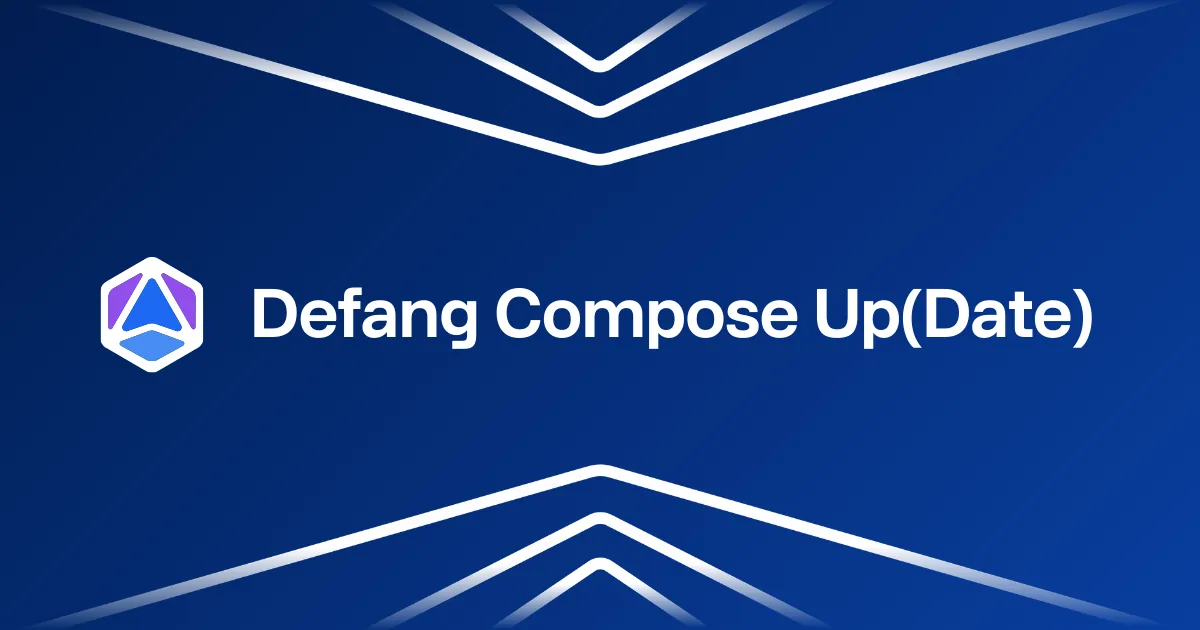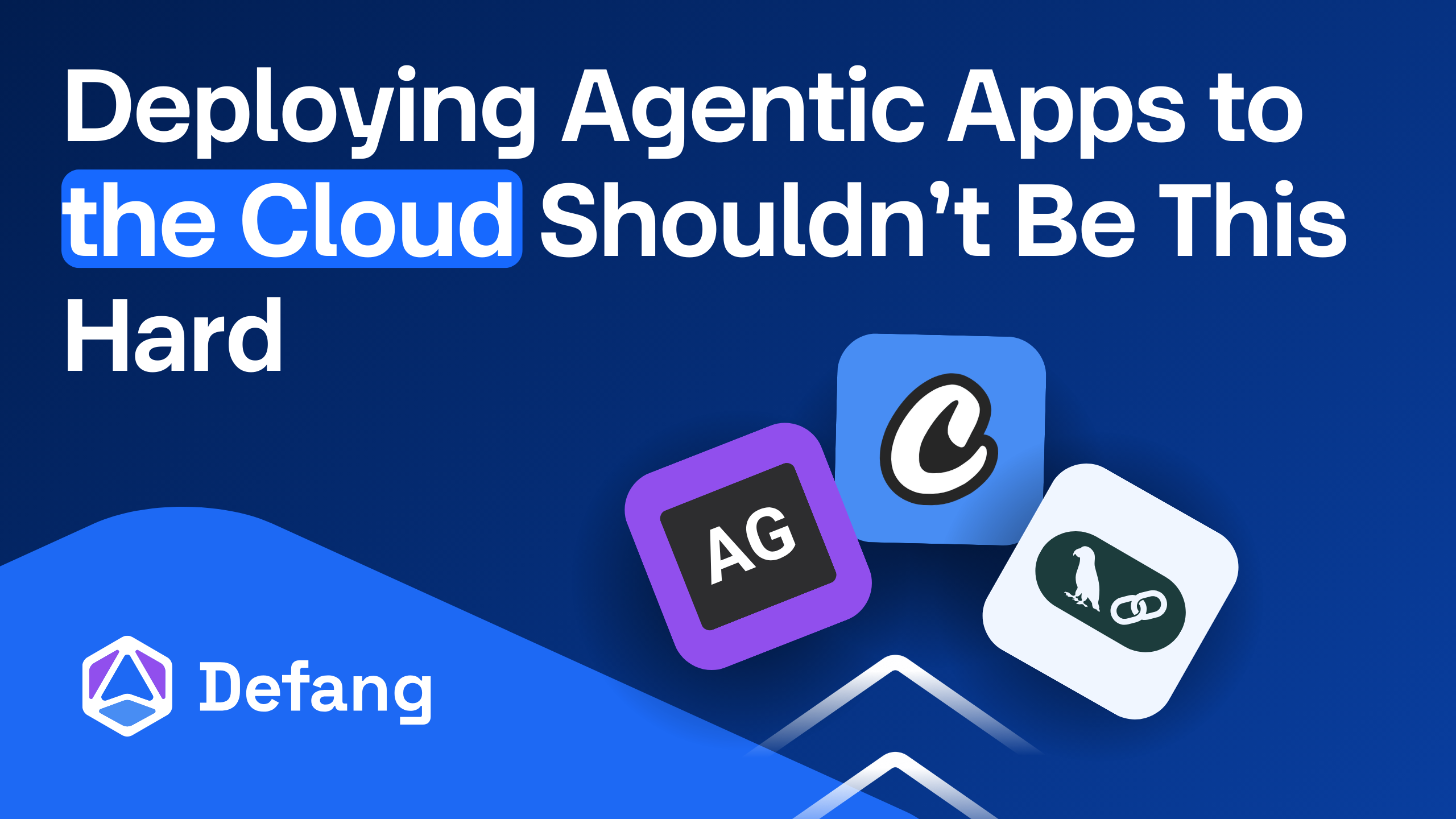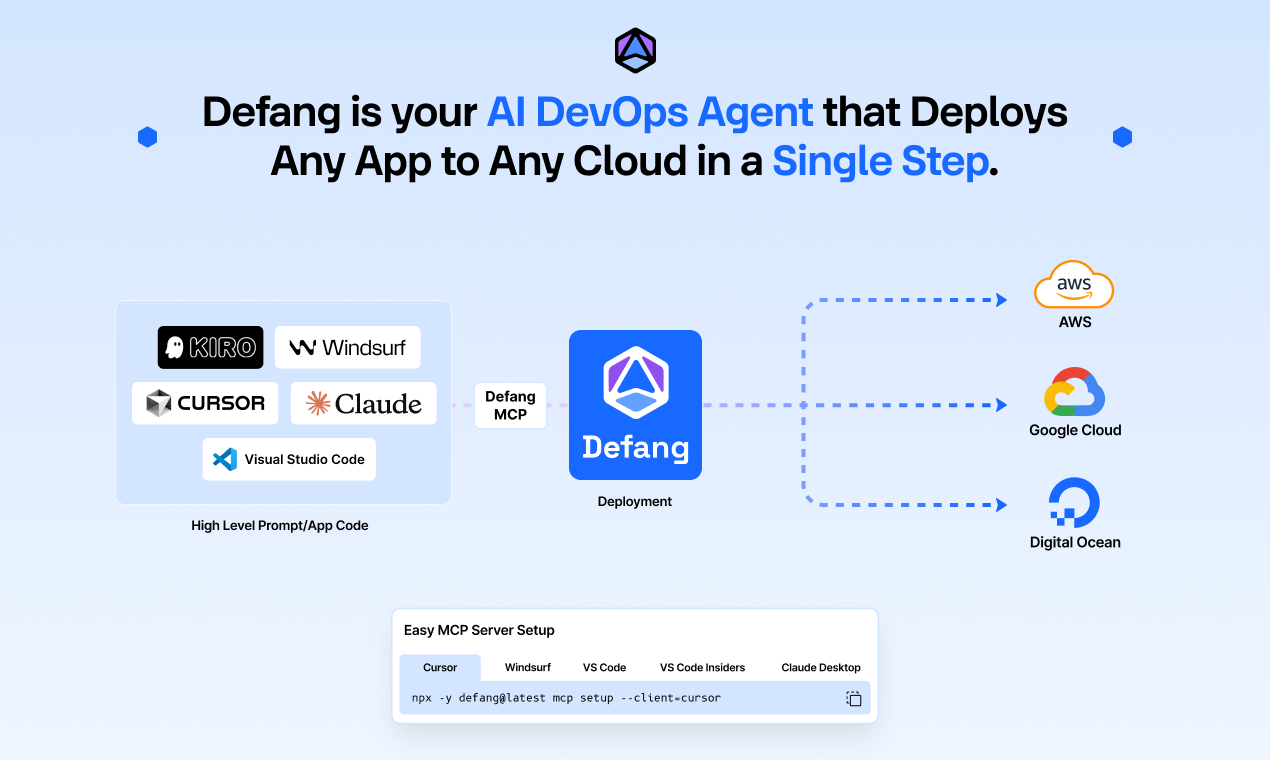August 2025 Defang Compose Update

August was about making migrations smoother and showing how you can already use Defang to deploy agentic apps at scale. We expanded our sample projects for popular multi-agent frameworks like CrewAI, LangGraph, Autogen, and Strands, validating them on Playground, AWS, and GCP so you can run multi-agent workloads in production without extra DevOps. Our new Heroku migration flow inspects dynos and add-ons, generates a clean Compose file, provisions managed equivalents like Postgres and Redis, and ships to your own cloud in one command. This cuts costs and removes lock-in. We also introduced MCP BYOC prompts so you can deploy to AWS and GCP straight from your IDE. Railpack on GCP now delivers faster, more reliable no-Dockerfile builds with clearer logs and closer parity with AWS.



